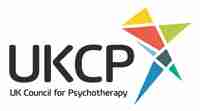History of AGIP
In the late 1960s, there was dissatisfaction amongst some reflective psychoanalytic psychotherapists over current practice, including the rigid divisions then operating between psychoanalytic schools. Penelope Balogh became interested in what the ‘new therapies’ coming from the USA might offer traditional models. Her active enquiry in this area was considered inappropriate by the then Association of Psychotherapists (now BAP) of which she was a founder member. Following debate, she withdrew to work with Joshua Bierer at the British Association of Social Psychiatry (BASP) to create an inclusive training. Other therapists joined her there. This group was subsequently evicted for being ‘too analytic’; whereupon it expanded and formed a weekly training seminar under the auspices of Professor Pond of the London Hospital. From this seminar arose two further ventures: the Consortium of Psychotherapists; and the ‘Sunday Group’, which met monthly to learn about the new therapies. This group met in Penelope Balogh’ss home, 29 St Mark’s Crescent, NW1.
In 1973, the idea of a formal training, both more thorough and more adventurous, was revived and was planned by Penelope Balogh and others. In June 1974, the Lady Balogh’s Psychotherapy Trust was created, with AGIP as an ‘autonomous part’ of it. In September 1974, AGIP took its first intake of students. Penelope Balogh died in June 1975.
AGIP’s Constitution was adopted at the inaugural General Meeting of 24January 1981, held at Burgh House, Hampstead. The first meeting of AGIP Council was held in September 1982, in which year also AGIP was represented at the first ‘Rugby’ Conference for Psychotherapy.
In 1987, following much debate throughout the organisation, the Trustees sold 29 St Mark’s Crescent, which was too expensive to maintain. It was decided to re-invest all the money in another large property, which could be a Trust headquarters for potential use by all the sections of the Trust (by then including ENWLPC, SLPC and the Freegrove Society). The Trustees accordingly bought 1 Fairbridge Road, N19, to which AGIP moved.
During the 1980s and 90s, AGIP members played a prominent part in establishing the United Kingdom Standing Conference for Psychotherapy (the beginnings of the UKCP). Dorothy Hamilton, AGIP’s then Director, was its Honorary Secretary from 1986 to 1992. In 1989, AGIP was enrolled as a member at the inaugural meeting of the UKSCP and in 1992, AGIP’s training was accepted by the Psychoanalytic and Psychodynamic Psychotherapy Section of the United Kingdom Council for Psychotherapy. In 1993, AGIP therapists were enrolled on the UKCP Register.
In 1994, the Trustees provided funding for the Fairbridge Clinic for low-fee paying patients, which was opened and subsequently operated by AGIP.
During the 1990s, it became apparent that AGIP was becoming too large and important to remain a ‘part’ of another organisation, and that it needed its own legal status. In 1996, the Trustees made an offer to facilitate AGIP’s independence from the Trust: a joint Working Party was formed to review the matter. Separation was achieved at the end of 1999, when AGIP became a Company Limited by Guarantee and thus entered a new phase of its history as a fully independent legal entity.


